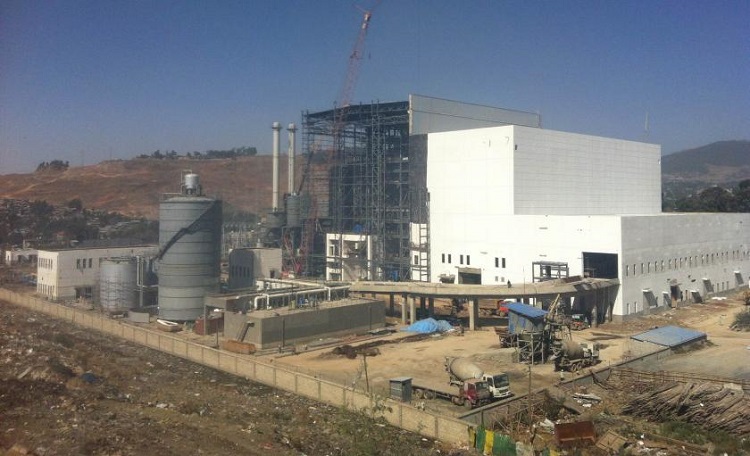Poor waste management is increasingly becoming a big problem in many countries in Africa. Just here in Kampala, the effects are poor waste disposal are significant. Waste incineration is already common in Europe, where nearly a quarter of waste is burnt. But in Africa, so far, the only ways to dispose of rubbish has been to pile it up, bury it or dump it in water bodies like swamps, lakes, rivers, etc.
Waste generation is closely related to population size and various activities undertaken by the different categories of people. Waste is generated through activities carried out by industries, during trading, farming, during household activities, in schools and in hospitals. This clearly means waste generation increases with increase in population. As such a number of issues such as urban lifestyles, resource consumption patterns, jobs and income levels, social economic issues and cultural issues have to be linked together to fight this problem. No standalone strategy can fix this problem.
How Ethiopia is tackling the problem
An Ethiopian entrepreneur is tackling the crisis with Africa’s first waste-to-energy plant, which reduces noxious and dangerous landfill while powering urban homes. Samuel Alemayehu, a Stanford engineer, former Silicon Valley entrepreneur and World Economic Forum Young Global Leader, says the plant will supply 30% of Addis Ababa’s household energy needs and incinerate roughly 80% of its rubbish. That’s 1,400 tons of waste every day. This waste-to-energy project commenced full construction in Addis Ababa in September 2014 and was completed in 2017.
Must read: Using Internet of Things, Ethiopia is transforming water supply
“We turn one of Africa’s most challenging social problems, the management of waste, into a source of new wealth,” Cambridge Industries, one of the companies behind the project, says in a video.
Until now, Addis Ababa’s rubbish was dumped on a vast, ever-growing landfill site that covers an area the size of 36 football pitches. Leaking waste from the site has polluted nearby rivers, while the waste itself produces methane, a powerful greenhouse gas.
The plant burns the capital’s rubbish at a temperature of up to 1,800 degrees Celsius and converts it into 185 million KW hours of electricity per annum. They are also planning on investing $2 billion annually in expanding the country’s renewable energy generation through 2030, double the current annual spending of $1 billion. The planned financing will include private investment, climate funds and clean energy sales to neighboring countries.
How electricity is got
The new plant burns rubbish in a chamber and uses the heat to boil water. The steam then drives a turbine generator that produces electricity. Modern gas treatment technology reduces the release of toxins during the process.
The ash from burning is then used to make bricks. The continuous reuse of trash, according to UN Environment, will result in the recovery of millions of liters of water.
“We hope that Reppie will serve as a model for other countries in the region, and around the world”, says Zerubabel Getachew, Ethiopia’s deputy permanent representative to the United Nations in Nairobi.
The electricity generated is hoped to power 25% of Addis Ababa’s homes and provide electricity to over 3 million people, according to Cambridge Industries. Hundreds of jobs will also be created.
[ot-video][/ot-video]
Alemayehu, a World Economic Forum Young Global Leader, is already working on expanding the reach of renewables on the continent. He has plans to construct similar waste-to-energy plants in Uganda, Kenya, Cameroon, Senegal and Djibouti.
“African cities have seen explosive growth in the past three decades and have outgrown the infrastructures planned for them”, says Alemayehu.
“We believe these plants will create for African megacities a modern, multipurpose infrastructure, using new technology, which will enable them simultaneously to dispose of waste, generate sustainable energy, clean and reuse water, recycle valuable resources, generate industrial grade steam for use by other businesses and, most importantly, do all this in one facility located safely within city limits.”
Samuel Alemayehu is a member of the World Economic Forum’s 2018 class of Young Global Leaders.
Related:
MTN, Vodacom warm up for ‘liberalised’ Ethiopian economy
Safaricom set to introduce mobile money to Ethiopia

